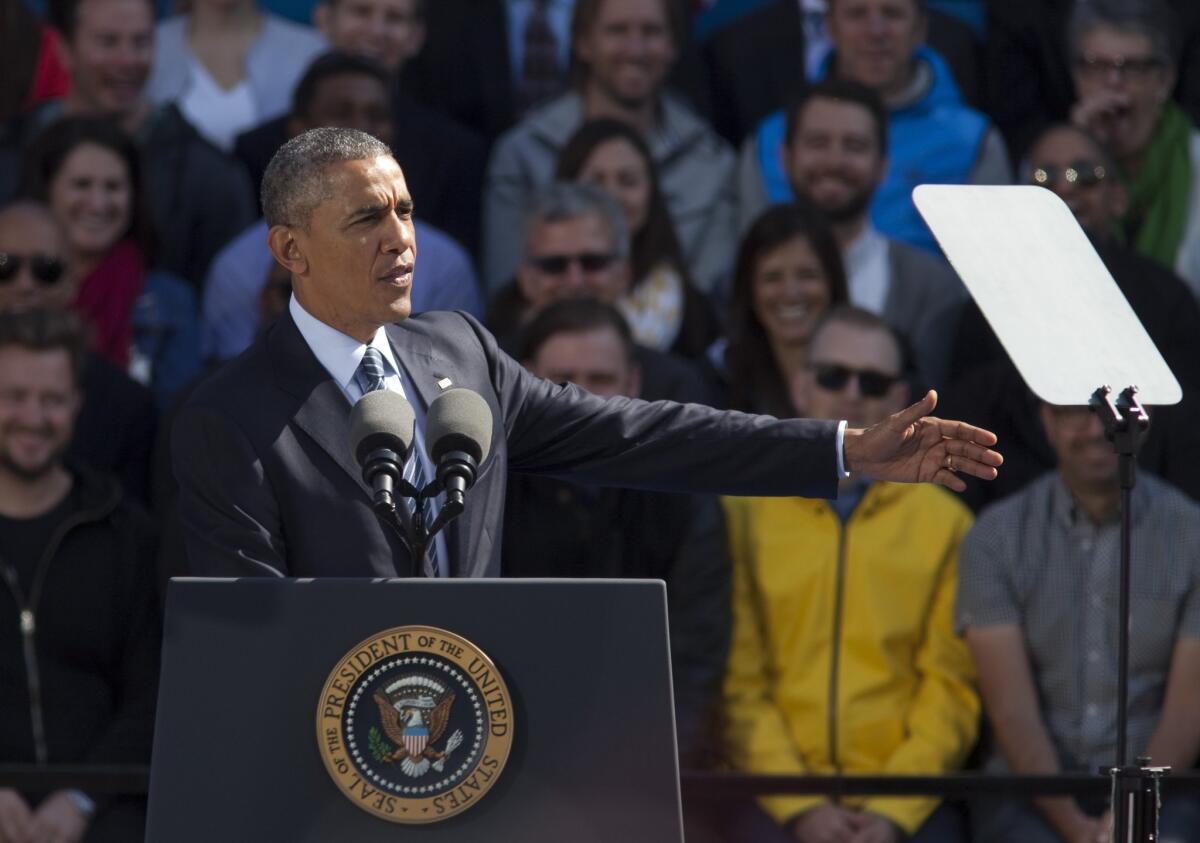Senate vote boosts Obama’s effort to push through biggest trade deal in U.S. history

President Obama talks about the
- Share via
Reporting from Washington — Despite some last-minute drama, the Senate on Thursday advanced a measure that would give President Obama “fast-track” authority to finalize a pending trade pact with leading Pacific nations.
Senators voted, 62-38, to end debate over the measure, which is supported by the White House and most Republicans but opposed by many Democrats worried that the 12-nation Trans-Pacific Partnership would hurt American workers.
Final passage could come as early as Thursday afternoon.
Earlier Thursday, Democrats nearly blocked the legislation from advancing over a separate dispute related to the future of the U.S.’s Export-Import Bank, which is in jeopardy of shutting down next month if Congress fails to reauthorize it.
The bank helps major U.S. corporations finance their business overseas, but it has become derided by tea party Republicans as a form of corporate welfare.
Republicans in the House have essentially acknowledged that they would prefer to allow the bank to wind down, rather than continue it.
But several lawmakers from both parties have businesses in their states, including aerospace giant Boeing, that depend on the bank and have pressed for it to continue.
After hurried negotiations on the Senate floor, a deal was reached to allow a separate vote on extending the bank’s authority, removing the final hurdle standing in the way of advancing the trade bill.
The fast-track bill is a top trade priority for the Obama administration, which is wrapping up largely secret negotiations with Japan and the other Pacific nations.
The fast-track measure guarantees that when the massive trade pact -- which is the largest of its kind -- is ready for a vote, Congress would not be able to amend it.
After Senate passage, the measure would move to the House, where it would meet stiff resistance from both Democrats and Republicans.
More to Read
Sign up for Essential California
The most important California stories and recommendations in your inbox every morning.
You may occasionally receive promotional content from the Los Angeles Times.














